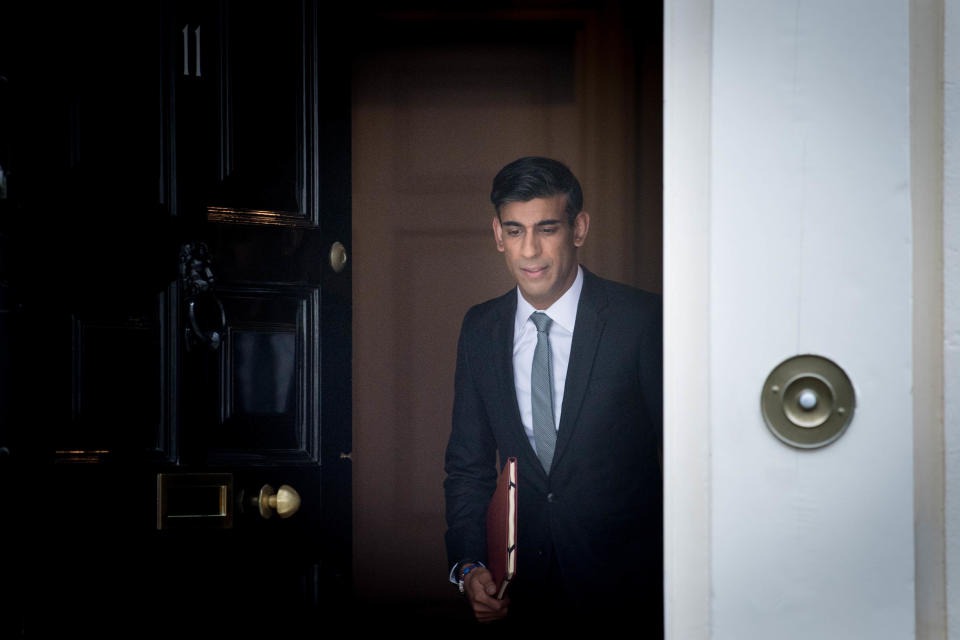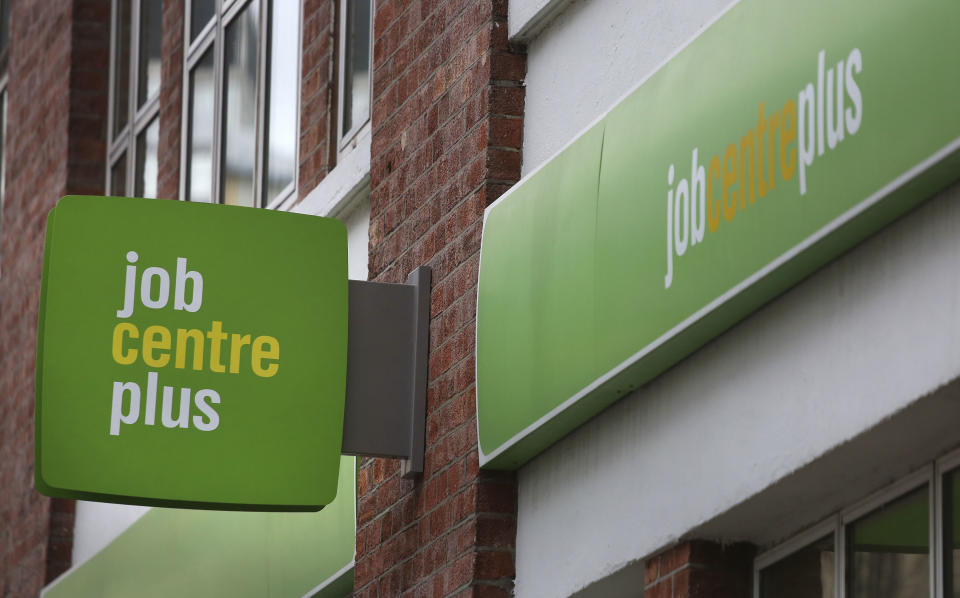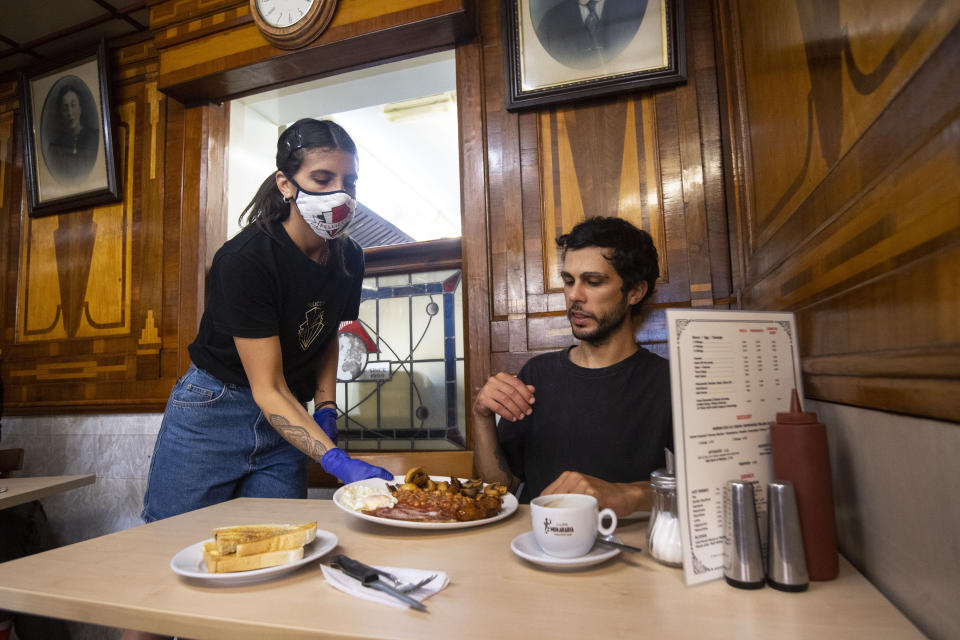What Rishi Sunak's summer statement means for you

Chancellor Rishi Sunak on Wednesday unveiled a package of financial measures meant to jumpstart the UK’s economy after months of COVID-19 lockdown.
The ‘summer statement’ featured giveaways to try and get people spending and sweeteners for businesses to preserve and create jobs.
Here’s what it means for you and your finances:
Young job seekers
Jobs were the main theme of Sunak’s statement and there was a particular focus on young job seekers.
“We cannot lose this generation,” the chancellor said.
Young people entering the labour market will be able to benefit from the new Kickstart Scheme, a £2bn ($2.5bn) programme aimed at getting 16-to-24 year olds into work placements. The government will cover the full costs of a 25-hour-a-week minimum wage placement for 6-months. The scheme should create hundreds of thousands of new placements.
£111m has also been budgeted for traineeships for 16-to-24-year-olds. Employers will be paid £1,000 for every new trainee they take on.
And firms will be paid for taking on apprentices. Businesses will get a one off payment of £2,000 for taking on an apprentice under the age of 25 and a £1,500 payment for an apprentice over the age of 25.
New funding for “high value” training courses and work academy places were also announced.
Read more: UK to create 'hundreds of thousands' of jobs for young as part of £2bn work placements scheme
Job hunters of any age
Sunak warned that unemployment was likely to raise across the country regardless of age group. He announced additional measure to “protect, support and create” jobs across the country.

Part of the plans include £1bn for the Department of Work and Pensions to help support people who are made redundant back into work. Funding will go towards a doubling of the number of work coaches in Jobcentre Pluses.
Read more: UK chancellor unveils £30bn plan to protect millions of jobs
People on furlough
Over 9 million people across the UK have been furloughed under the government’s job retention scheme since it was first announced in March.
The scheme is due to end in October and many business groups and unions had urged to chancellor to extend it to avoid job losses.
Sunak said the programme “cannot and should not go on forever” and extending it would give people “false hope.”
He said that the end of the job retention scheme would be a “difficult moment” but announced a new job retention bonus meant to minimise the number of job losses when furlough ends.
Read more: Furlough scheme caps out at 9.4 million people
Business owners
The main boost for business-owners is the new job retention bonus. The government said it will pay companies a one-off bonus of £1,000 for every furloughed employee they bring back on staff when the scheme ends.
Employees must earn at least £520 per month from October until January 2021 for businesses to qualify for the bonus, which will be paid out next February. It means companies could in effect get three months work from employees for the price of one.
Sunak said the government was prepared to pay the £1,000 bonus for all 9.4 million people who have been furloughed, meaning the policy could cost the government up to £9.4bn. It was the single most expensive stimulus policy announced in the summer statement.
Read more: Chancellor promises ‘bonus’ for firms that bring back furloughed workers
Homeowners
Homeowners are perhaps the biggest winners when it comes to the personal finance impact of Sunak’s summer statement.
The chancellor announced £2bn of new Green Home grants that homeowners can spend on energy efficient renovations such as insulation and double glazing. For every £1 a homeowner spends on a project, the government will contribute £2, up to a maximum of £5,000. Britain’s poorest will also qualify for full grants of up to £10,000.
Read more: Chancellor announces £5,000 'green' giveaway for home owners and landlords
Homeowners looking to sell also scored a boost in the form of a temporary stamp duty holiday until next March. The threshold for stamp duty has risen from £125,000 to £500,000 in England and Northern Ireland. The chancellor said the change means 9 out of 10 property transactions will not incur the tax.
Read more: UK government announces stamp duty holiday to boost property market
Eating out
The most radical policy announced was a new “Eat Out to Help Out” scheme that will see the government subsidise the public’s meals in restaurants, bars, pubs, and cafes.
The government will give diners a discount of up to 50%, or a maximum of £10 per head, on meals eaten out. The discount will cover all food and non-alcoholic drinks. The offer will run Monday to Wednesday throughout August.

Restaurants must registered with the government to take part in the scheme and will be reimbursed by the government after the fact.
The government has also cut VAT for hospitality and leisure businesses from 20% to 5%. That should make many meals cheaper at the tills.
Read more: Brits get 50% off restaurants with 'Eat Out to Help Out' scheme
Holidays
The VAT cut should also make holidays cheaper. Accommodation and attractions will see their rate of VAT go down from 20% to 5%, meaning booking a hotel or going somewhere like Alton Towers should get cheaper.
Sunak said the tax cut should help get pubs, restaurants, cafes and B&Bs “bustling again.”
“This is a £4bn catalyst for the hospitality and tourism sectors, benefiting over 150,000 businesses, and consumers everywhere — all helping to protect 2.4 million jobs,” the chancellor said.

